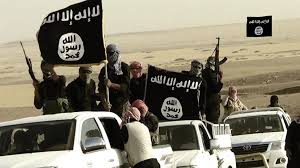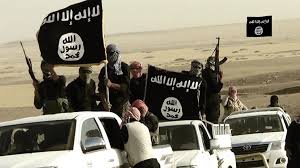
Monitors and state media of Syria said that on Monday, nearly 150 people were killed and wounded at least 200 others in the government-controlled territory that hosts Russian military bases in Jableh and Tartous on Syria's Mediterranean coast.
Saying it was targeting members of President Bashar al-Assad's Alawite minority, the responsibility of the attacks was claimed by the Islamic State. The cities that were chosen for the attacks have up to now escaped the worst of the violence in the five-year-old conflict.
At least five suicide bombers and two devices planted in cars killed 148 people, said the Britain-based Syrian Observatory for Human Rights. In an area that is described as Assad's coastal heartland, 78 people had been killed, State media had said.
Tartous is the capital of Tartous province and is the home to a Russian naval facility while Jableh in Latakia province is near a Russian-operated air base.
After the collapse of a Feb. 27 ceasefire in April due to intensifying violence in a war that has killed at least 250,000 people, the need to press ahead with peace talks was underscored by the blasts, the Kremlin said.
"This demonstrates yet again just how fragile the situation in Syria is. And this one more time underscores the need for new urgent steps to continue the negotiating process," Kremlin spokesman Dmitry Peskov told journalists.
Kremlin said that Russian President Vladimir Putin sent his condolences to Assad and reiterated his readiness to fight with the Syrian government against "the terrorist threat".
Referring to support given to the rebels by Saudi Arabia, Turkey and Qatar, in a letter to the United Nations, the Syrian Foreign Ministry said that the blasts were a "dangerous escalation by the hostile and extremist regimes in Riyadh, Ankara and Doha", state television reported.
U.N. Secretary General Ban Ki-moon condemned the attacks.
A man walked into a hospital emergency department and blew himself up in one of the four blasts in Jableh. Another blast was at a bus station. the Observatory and state media said that a bus station were also targeted by the Tartous bombs.
He heard an explosion at the bus station, followed less than a minute later by the hospital blast, Younes Hassan, a doctor at the Jableh hospital told the media.
"Everything went into emergency mode, wounded people began arriving," he told Reuters by phone.
This latest attack on the healthcare sector was also condemned by the International Committee of the Red Cross.
A driver at the bus station said that the Tartous explosions occurred in quick succession.
"People began running but didn't know which direction to go, cars were on fire, there was blood and bodies on the ground," Nizar Hamade said.
Several twisted and burnt-out cars and vans were seen in footage broadcast by the state-run Ikhbariya news channel.
Saying its fighters had targeted "gatherings of Alawites", the Islamic State claimed the attacks in a statement posted online by the group's Amaq news agency.
The attacks were carried out in a government-held area "so they experience the same taste of death which Muslims so far have tasted from Russian (and Syrian government) air strikes on Muslim towns", aid a second statement issued by the militant group.
(Source:www.reuters.com)
Saying it was targeting members of President Bashar al-Assad's Alawite minority, the responsibility of the attacks was claimed by the Islamic State. The cities that were chosen for the attacks have up to now escaped the worst of the violence in the five-year-old conflict.
At least five suicide bombers and two devices planted in cars killed 148 people, said the Britain-based Syrian Observatory for Human Rights. In an area that is described as Assad's coastal heartland, 78 people had been killed, State media had said.
Tartous is the capital of Tartous province and is the home to a Russian naval facility while Jableh in Latakia province is near a Russian-operated air base.
After the collapse of a Feb. 27 ceasefire in April due to intensifying violence in a war that has killed at least 250,000 people, the need to press ahead with peace talks was underscored by the blasts, the Kremlin said.
"This demonstrates yet again just how fragile the situation in Syria is. And this one more time underscores the need for new urgent steps to continue the negotiating process," Kremlin spokesman Dmitry Peskov told journalists.
Kremlin said that Russian President Vladimir Putin sent his condolences to Assad and reiterated his readiness to fight with the Syrian government against "the terrorist threat".
Referring to support given to the rebels by Saudi Arabia, Turkey and Qatar, in a letter to the United Nations, the Syrian Foreign Ministry said that the blasts were a "dangerous escalation by the hostile and extremist regimes in Riyadh, Ankara and Doha", state television reported.
U.N. Secretary General Ban Ki-moon condemned the attacks.
A man walked into a hospital emergency department and blew himself up in one of the four blasts in Jableh. Another blast was at a bus station. the Observatory and state media said that a bus station were also targeted by the Tartous bombs.
He heard an explosion at the bus station, followed less than a minute later by the hospital blast, Younes Hassan, a doctor at the Jableh hospital told the media.
"Everything went into emergency mode, wounded people began arriving," he told Reuters by phone.
This latest attack on the healthcare sector was also condemned by the International Committee of the Red Cross.
A driver at the bus station said that the Tartous explosions occurred in quick succession.
"People began running but didn't know which direction to go, cars were on fire, there was blood and bodies on the ground," Nizar Hamade said.
Several twisted and burnt-out cars and vans were seen in footage broadcast by the state-run Ikhbariya news channel.
Saying its fighters had targeted "gatherings of Alawites", the Islamic State claimed the attacks in a statement posted online by the group's Amaq news agency.
The attacks were carried out in a government-held area "so they experience the same taste of death which Muslims so far have tasted from Russian (and Syrian government) air strikes on Muslim towns", aid a second statement issued by the militant group.
(Source:www.reuters.com)





